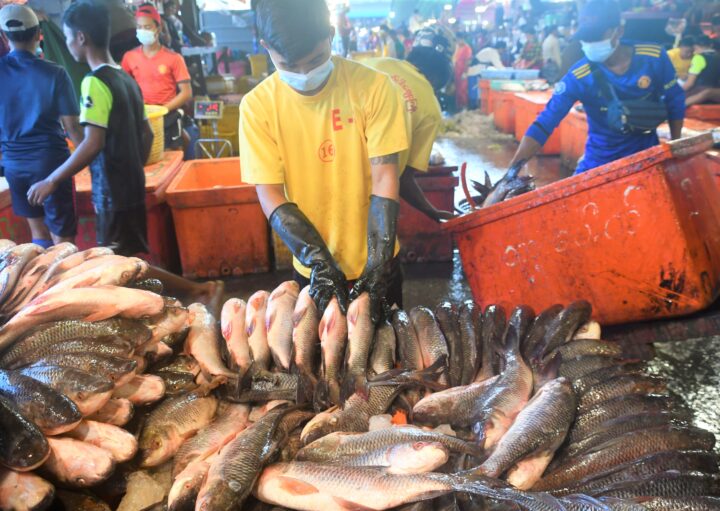October 19, 2022
Myanmar conveyed 5,160 tonnes of rohu to Bangladesh through two cross-border posts in the first five months (April-August) of the current financial year 2022-2023, according to the Ministry of Commerce.
However, the border trade has come to a halt since September amid transport security concerns, according to the Maungtaw border post.
Rohu is processed in Yangon and they are sent to the Sittway border post by cold-storage trucks or ships after pre-shipment inspection. Then, they are shipped to Bangladesh by motorboats. Myanmar has begun exporting rohu to Bangladesh through Sittway and Maungtaw border posts since 2016.
Agriculture and livestock are the backbones of Myanmar’s economy. Commercial fish farming businesses are found in some townships in Yangon, Bago and Ayeyawady regions. Two-year-old rohu grows two to five kilogrammes at the farming ponds. Those rohu weighing below two kg are sent to domestic markets. The large ones are exported to external markets. As rohu has grasped market shares in the international markets, farmers have expanded rohu farming more than before.
Approximately 1,000 tonnes of rohu from Yangon city are delivered to Sittway and Maungtaw border posts in Rakhine State with Bangladesh. Rohu from the other two cities is also sent to the border via sea route and road transport.
Rohu and other dried commodities such as onion, tamarind, ginger, and dried plum are shipped to Bangladesh through Rakhine State, while wide striped longyi for men (Palaykat Pasoe – cotton sarong for men), plastic gallon containers, footwear and construction materials are imported to Myanmar. Exports surpass imports in cross-border trade between Myanmar and Bangladesh.
The value of border trade between Myanmar and Bangladesh amounted to $16.229 million in the first half of the current FY, comprising exports worth $16 million and imports worth $0.03 million, as per the statistics released by the Ministry of Commerce. — KK/GNLM


